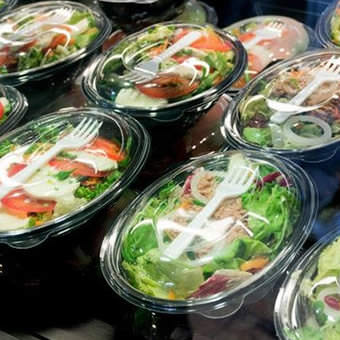Introduction
Private label specialized foods have actually acquired enormous popularity over the last few years. With consumers seeking distinct and tailored food choices, private label food have become a go-to selection for lots of. In this short article, we will delve into the detailed procedure of private label food production, discovering the actions included and the principals in the industry.
The Surge of Private Label Food Manufacturers in Australia
Australia has witnessed a substantial surge in private label food makers. With consumers coming to be much more aware concerning their dietary preferences and demanding top notch items, private label food production has actually become a lucrative service opportunity. These manufacturers cater to various sections, consisting of personal label cheese, snack food producers, and more.
Understanding Private Label Food Manufacturing
Private tag food manufacturing involves producing and creating food products for stores or companies that after that market these items under their very own trademark name. This procedure enables stores to supply special offerings to their clients without spending heavily in research and development or production infrastructure.
Key Steps Associated with Private Label Food Manufacturing
Step 1: Item Advancement and Customization
Private label food manufacturers work carefully with retailers to comprehend their requirements and develop personalized items. This step involves brainstorming sessions, market research, and recipe formula. Private tag specialty foods are created to accommodate details consumer choices and nutritional needs.
Step 2: Sourcing Ingredients
Once the product specifications are wrapped up, private label food suppliers resource high-quality ingredients from relied on vendors. They make sure that all components fulfill stringent high quality criteria and follow guidelines set by relevant authorities.

Step 3: Manufacturing and Packaging
After procuring the active ingredients, private label food manufacturing starts. The production facilities utilize state-of-the-art tools and follow strict hygiene methods to create safe and tasty food. Packaging is likewise an important part of this action, making sure that the item stays fresh while appealing to consumers.
Step 4: Quality Control and Testing
Private tag food suppliers perform strenuous quality control checks at every stage of the production procedure. This includes testing the active ingredients, checking production lines, and carrying out sensory evaluations. These actions make sure that the final product meets the best standards.
Step 5: Identifying and Compliance
Once the products are made and high quality tested, private label food makers manage labeling and conformity. They ensure that all details on the product tags is exact and complies with governing standards. This step is important to give customers with clear details concerning the item's materials and dietary values.
Advantages of Private Label Food Manufacturing
Private tag food production offers several advantages for both merchants and consumers. Let's check out a few of these advantages:
Customization: Merchants have the flexibility to create distinct products customized to their target audience, allowing them to distinguish themselves from competitors.
Cost-effectiveness: Private label food producers offer economical options by eliminating the need for retailers to invest in research, advancement, and production infrastructure.
Control over branding: Retailers can build their brand photo by marketing personal tag foods under their own name. This allows them to establish depend on and loyalty amongst consumers.
Flexibility: Private label food production gives retailers with versatility in regards to product offerings. They can conveniently adapt to transforming consumer trends and preferences.
Higher earnings margins: With decreased production costs, merchants can enjoy higher profit margins on private label foodstuff contrasted to branded alternatives.
Quality assurance: Private label food makers prioritize quality control measures, guaranteeing that merchants receive consistent and top quality items for their customers.
FAQs regarding Private Label Food Manufacturing
Q1: What is the duty of private label food manufacturers?
A1: Private label food manufacturers play a crucial duty in creating tailored foodstuff for merchants or services who market them under their very own brand name.
Q2: Just how does private label food manufacturing benefit retailers?
A2: Private label food production enables sellers to offer one-of-a-kind products, build their brand picture, and enjoy greater profit margins contrasted to branded alternatives.

Q3: Can private label food suppliers satisfy particular dietary preferences?
A3: Yes, private label food producers can establish items tailored to certain dietary requirements and choices, including gluten-free, vegan, or natural options.
Q4: Exist any regulations controling private label food manufacturing?
A4: Yes, private label food manufacturers must adhere to regulations established by relevant authorities relating to ingredient sourcing, labeling, and high quality control.
Q5: Can private label food suppliers deal with large-scale production?
A5: Yes, private label food manufacturers have the capabilities to take care of both small-scale and massive manufacturing based on the merchant's requirements.
Q6: How can sellers guarantee the top quality of private label food products?
A6: Sellers need to collaborate with reliable private label food manufacturers that prioritize stringent quality control actions and have a record of supplying remarkable products.
Conclusion
Private label food manufacturing uses a world of chances for sellers aiming to supply distinct and customized Click for more info offerings to their customers. With a streamlined process including item development, ingredient sourcing, manufacturing, product packaging, and quality control, exclusive tag specialized foods have gotten tremendous appeal. By partnering with reputable private label food makers in Australia or any kind of various other region, merchants can develop their brand name identity while enjoying cost-effectiveness and flexibility in their item offerings. So why wait? Dive into the exciting globe of private label foods today!